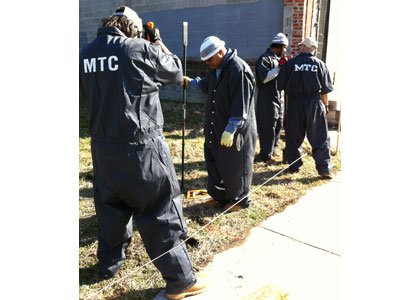Maryland inmates planted special wildflower and grass seeds in eight vacant Baltimore lots, hoping to turn them into flowering meadows.
The effort is part of a partnership with the University of Maryland Baltimore County (UMBC) to plant experimental seeds that seven inmates have been testing as part of the school’s West Baltimore Wildflower Project.
The inmates cultivated the flower and grass seeds at the Metropolitan Transition Center in Baltimore, where they have toiled for months in two greenhouses, including one they built themselves. Participation in the project is part of the Department of Public Safety and Correctional Services’ (DPSCS) Public Safety Works restorative justice efforts to teach inmates responsibility.
“The pride that this project has instilled in the inmates will aid them tremendously in their success upon re-entry into society,” said Felicia Hinton, Director of Corrections for the DPSCS Central Region.
The DPSCS has been a national leader in inmate environmental projects ranging from restoring Chesapeake Bay grasses to planting one million trees throughout the state.
The goal of this project is to transform unused vacant lots into low-maintenance, attractive green spaces bringing natural beauty into the neighborhood while positively impacting the environment, according to Christopher Swan, a UMBC associate professor of geography and environmental science who leads the project.
The inmate enthusiasm and dedication to the project has served as its roots, Swan said. DPSCS partners with other government agencies, community groups and non-profits to help them accomplish jobs that might otherwise not get done due to limited resources and funding.
“We’re doing it on a large scale over a long period of time,” he said. “We could not do that without the inmates being able to help.”
Inmates are glad to give back to the community, said Nathan Boone, an inmate who worked on the project.
“It’s an amazing feeling,” Boone said. “You get to learn a trade that you can take out to the street and you can beautify your own neighborhood.”
